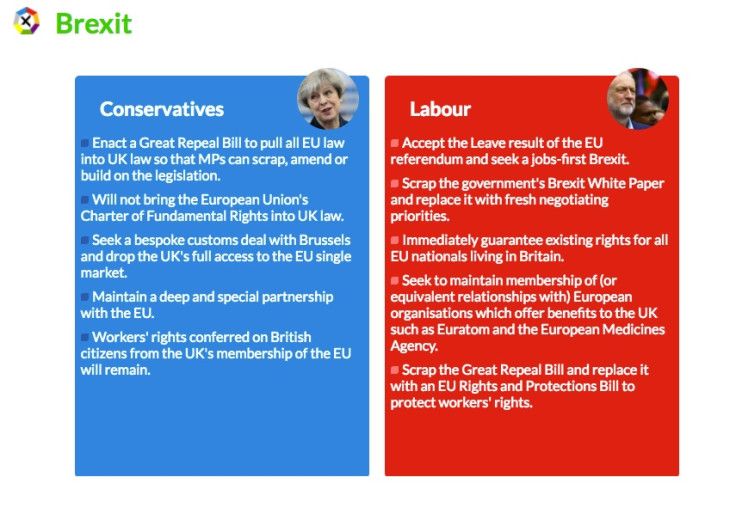Labour campaign chief admits party could change Brexit stance if public opinion shifts
Andrew Gwynne reportedly said Labour would be 'flexible' over the issue if the polls change.
Labour may change their pro-Brexit stance if the UK public change their mind about splitting from the EU, the party's general election campaign chief has reportedly admitted. Andrew Gwynne, the shadow cabinet minister, said Labour's support for Brexit could be "flexible" as he addressed an event organised by PR firm Four Public Affairs, according to The Mirror.
"We recognise that the country voted to leave. Whether public opinion shifts in the course of the next couple of years will be interesting to see." Gwynne told attendees. "And I think once the reality of what Brexit is going to look like becomes more apparent, it may well be that the political situation changes sufficiently that the Labour Party's nuanced position might also have more flexibility."
The comments come amid a row within Labour over whether the party should back splitting from the EU's customs union or not.
Shadow International Trade Secretary Barry Gardiner said such a position would be a "disaster" because the UK would split from the EU and have to allow Brussels to broker its free trade agreements with non-EU nations.
But he was later slapped down by a spokesperson for Jeremy Corbyn, who said the issue was open.
Chuka Umunna, a supporter of the Open Britain campaign and member of the All-Party Parliamentary Group (APPG) on EU relations, has urged Labour to distinguish itself from the Conservatives. "Taking [the] single market and customs union membership off the table in the Brexit talks is the Tory position, it should not be Labour's," he said.
Ipsos MORI's latest poll, of more than 1,000 people in July, found that 49% (+5) of voters thought the UK government should prioritise having access to the single-market, whilst 41% (-1) of respondents said Theresa May and her ministers should concentrate on controlling immigration.
The latest round of the talks between Brexit Secretary David Davis and the EU's chief negotiator Michel Barnier failed to final a resolution on the future of the more than three million EU nationals in the UK and the more than one million Britons on the continent. Brussels wants the European Court of Justice's jurisdiction to continue in the UK after Brexit, something which the UK government opposes.

© Copyright IBTimes 2025. All rights reserved.






















